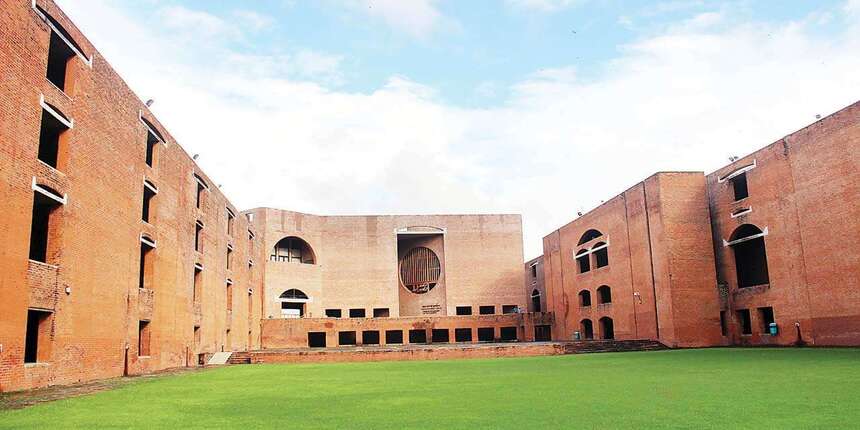QS Rankings: IIM-Ahmedabad among world's top 25 for management studies, JNU India's top university
Press Trust of India | April 10, 2024 | 07:48 PM IST | 4 mins read
Jawaharlal Nehru University is the highest-ranked university in India in the coveted rankings announced by Quacquarelli Symonds.

NEW DELHI: IIM-Ahmedabad is among the top 25 institutions globally for business and management studies while IIM-Bangalore and IIM-Calcutta are among the top 50, according to the QS Wolrd University Rankings by Subject, announced on Wednesday. Jawaharlal Nehru University is the highest-ranked university in India in the coveted rankings announced by Quacquarelli Symonds (QS), the London-based higher education analytics firm. The university is ranked at 20th position globally for development studies.
The Saveetha Institute of Medical and Technical Sciences in Chennai is at 24th position globally for dentistry studies. QS CEO Jessica Turner said, "One of the biggest challenges faced by India is educational -- providing high-quality tertiary education in the face of exploding demand: this much was recognised by 2020's NEP (National Education Policy), which set the ambitious target of a 50 per cent gross enrolment ratio by 2035. It should, therefore, provide some reassurance that the number of Indian programmes featuring across our 55 subject rankings and five broad faculty areas has increased this year -- from 355 to 454." "QS also notes that several programmes at India's three privately-run Institutes of Eminence have made progress this year, demonstrating the positive role that well-regulated private provision can have in enhancing India's higher education sector.
While there is still a lot of work to be done to improve standards, access to higher education, universities' digital readiness and global competitiveness, it is clear that India is taking significant steps in the right direction," Turner added. In this year's QS World University Rankings by Subject, India has demonstrated significant progress, with a 20 per cent improvement in the Citations per Paper indicator, reflecting a strong research capability. Additionally, there has been a 16 per cent growth in the International Research Network indicator, which measures the volume and diversity or research partnerships.
However, there was a decrease of 5 per cent in the H Index, which assesses the balance between research productivity and its impact. According to QS, India stands as one of the world's most rapidly expanding research centres. From 2017 to 2022, its research output surged by an impressive 54 per cent, based on data from Scopus/Elsevier, QS' bibliometric and research affiliate. This increase is not only more than double the global average but also significantly exceeds the output of its more traditionally recognised Western peers. "In terms of volume, India is now the world's fourth-largest producer of research, generating 1.3 million academic papers in this period, trailing only behind China's 4.5 million, the United States' 4.4 million, and slightly less than the United Kingdom's 1.4 million," said Ben Sowter, QS' senior vice-president. "Given its current trajectory, India is on the brink of overtaking the United Kingdom in research productivity.
India's research impact
However, in terms of research impact, measured by citation count, India ranks ninth globally for the 2017-2022 period. While it is an impressive result, prioritising high-quality, impactful research and its dissemination within the academic community is the essential next step," Sowter added. A further illustration of this challenge is India's performance in securing citations in premier global journals, as defined by CiteScore metrics. Between 2017 and 2021, only 15 per cent of India's research was cited in these top-tier journals.
This is starkly contrasted with its nearest competitors in research volume, the United Kingdom and Germany, which reported citation percentages in top journals at 38 per cent and 33 per cent, respectively. Sowter said, "Despite facing challenges such as enhancing research standards, educating the world's largest school-age population, growing the economy and the labour market to match the rapidly increasing number of job seekers while securing a position of global competitiveness, India is undeniably becoming a formidable player the international academic community."
The 2024 QS World University Rankings by Subject provide an independent comparative analysis on the performance of more than 16,400 individual university programmes, taken by students at more than 1,500 universities in 95 countries and territories, across 56 academic disciplines and five broad faculty areas (Arts and Humanities, Engineering and Technology, Life Sciences, Natural Sciences and Social Sciences). In the broader Asian regional context, India secured the second spot in terms of the number of universities featured (69), trailing only mainland China (101), and holds the fourth position in the total number of ranked entries (454) after China (1,041), Japan (510) and South Korea (499). India ranks fifth regionally for the number of top 200 entries and sixth for the number of top 100 entries. "QS uses five key metrics to compile the subject rankings.
The precise weighting of each metric varies by subject to reflect differing publication cultures across disciplines. For example, research performance, based on the analysis of the bibliometric database Scopus/Elsevier, is deemed to be a stronger indicator of institutional strength in Medicine, where the discipline is highly reliant on dissemination of research, than it is in Performing Arts, where the discipline is more vocational in nature," it said in a statement.
Follow us for the latest education news on colleges and universities, admission, courses, exams, research, education policies, study abroad and more..
To get in touch, write to us at news@careers360.com.